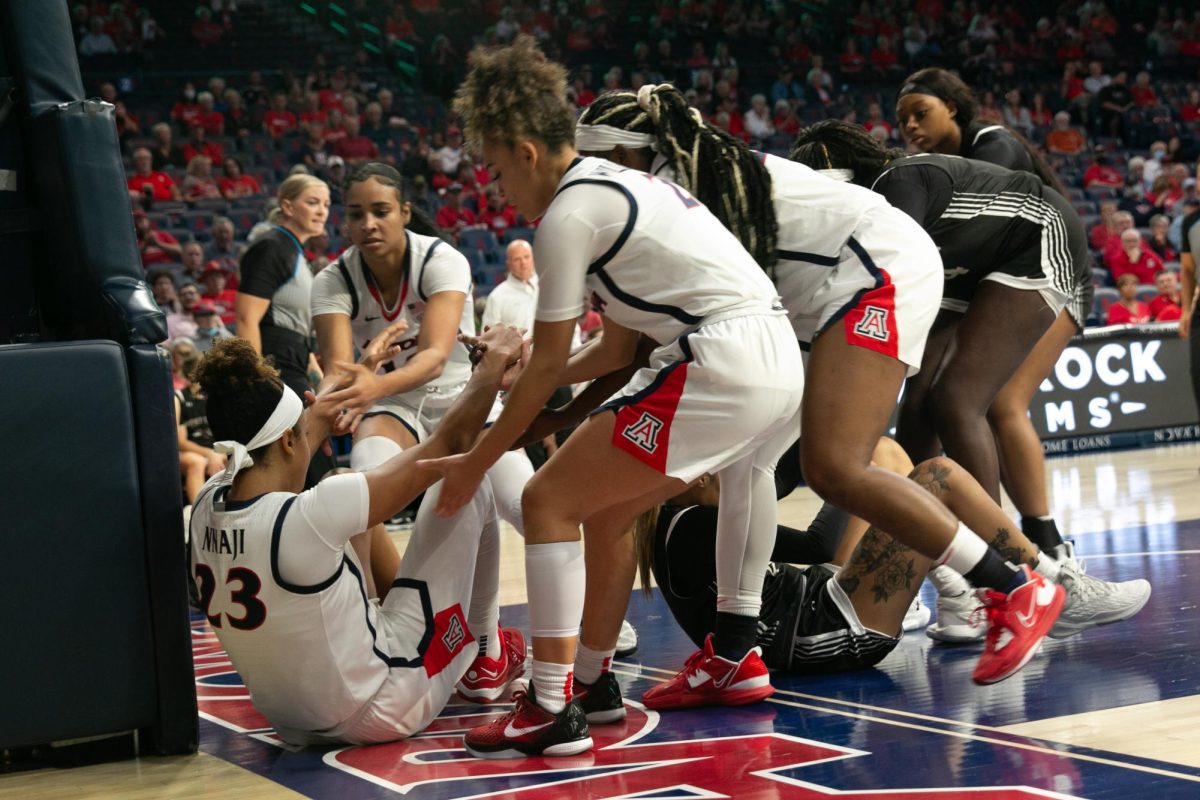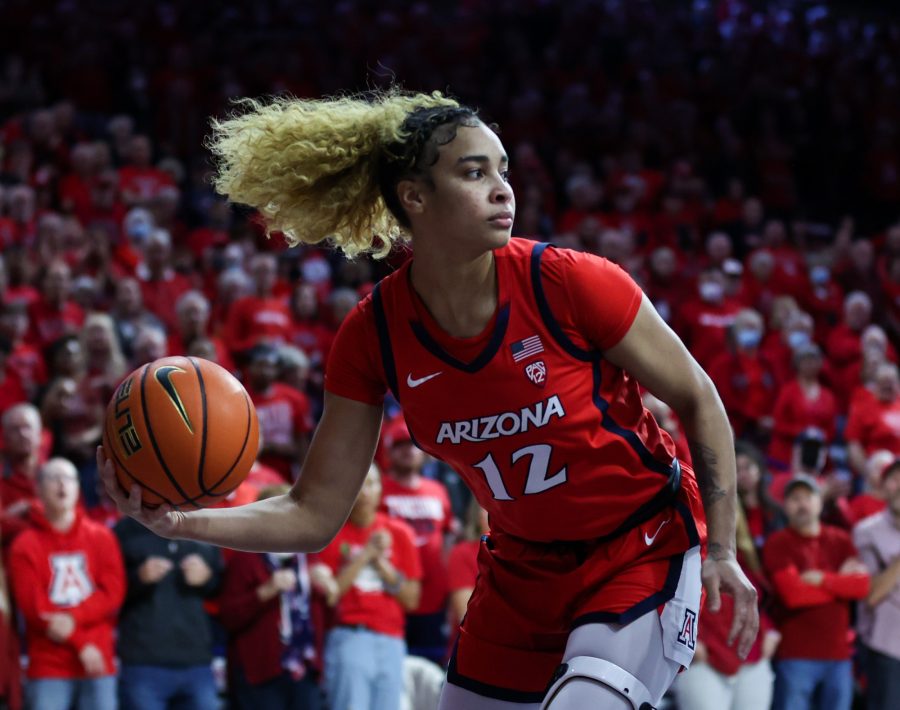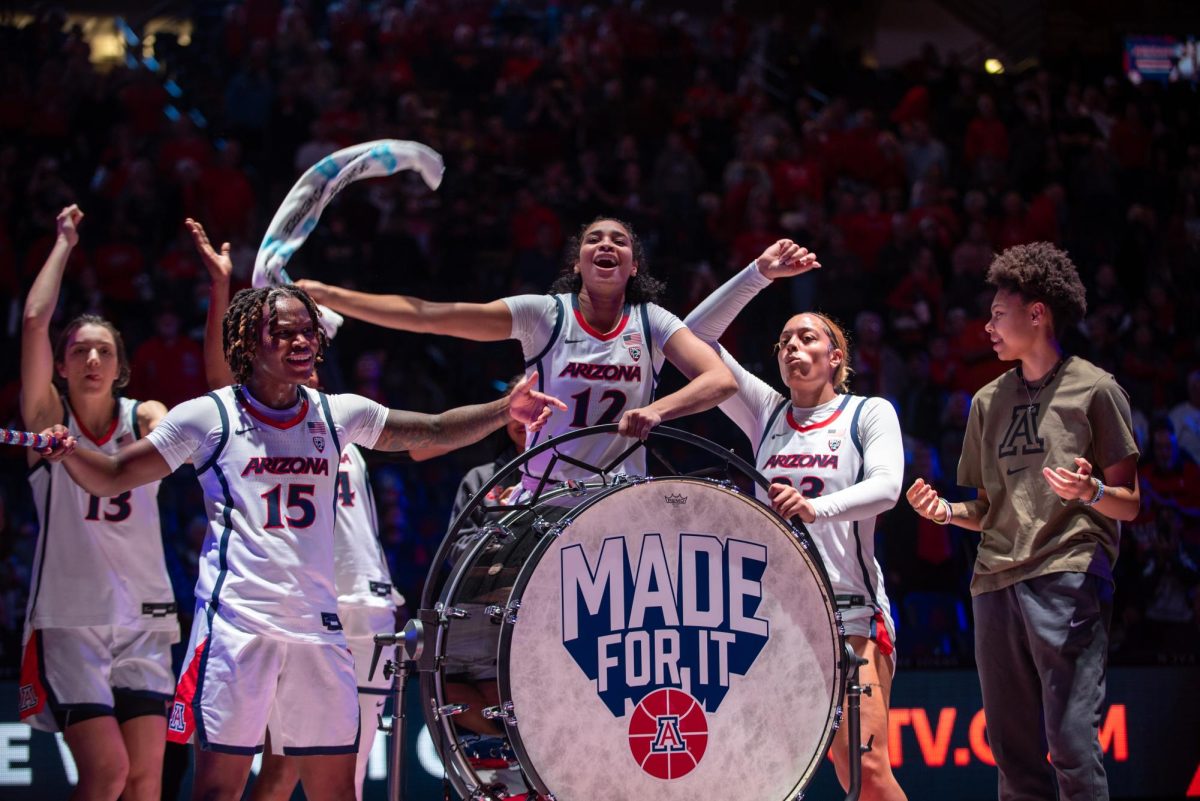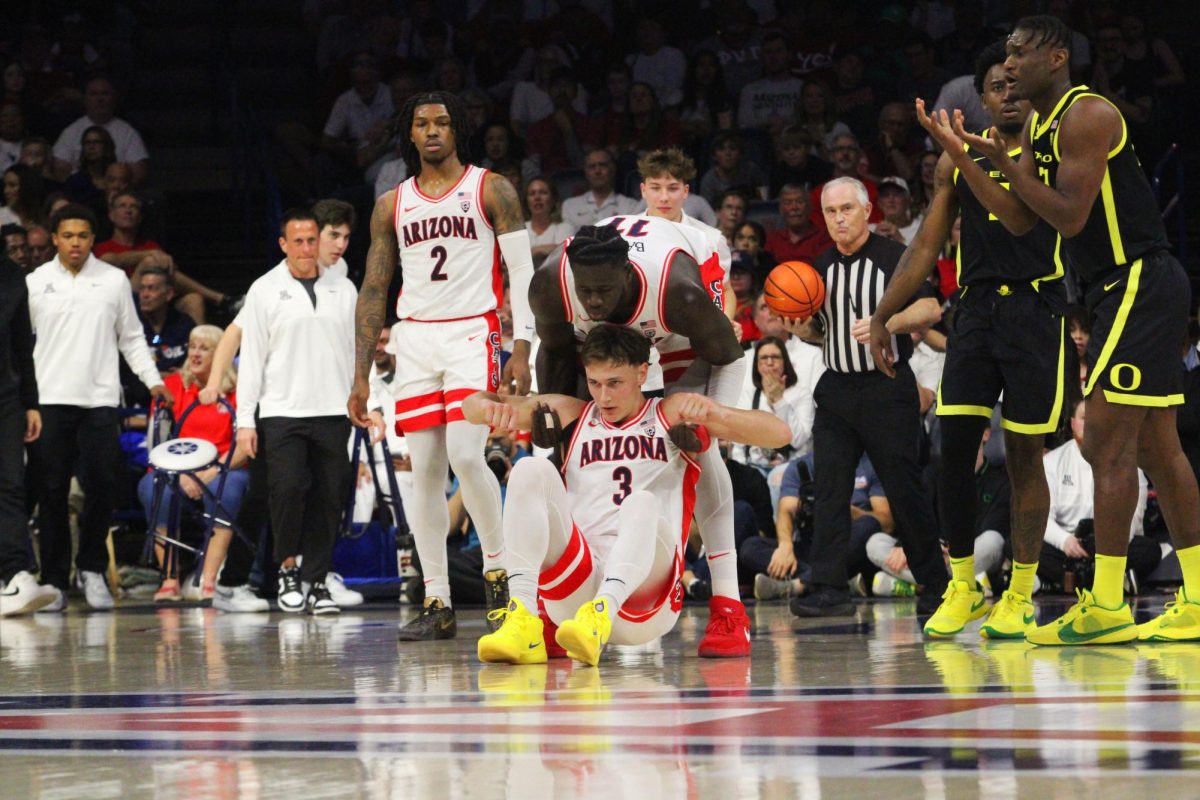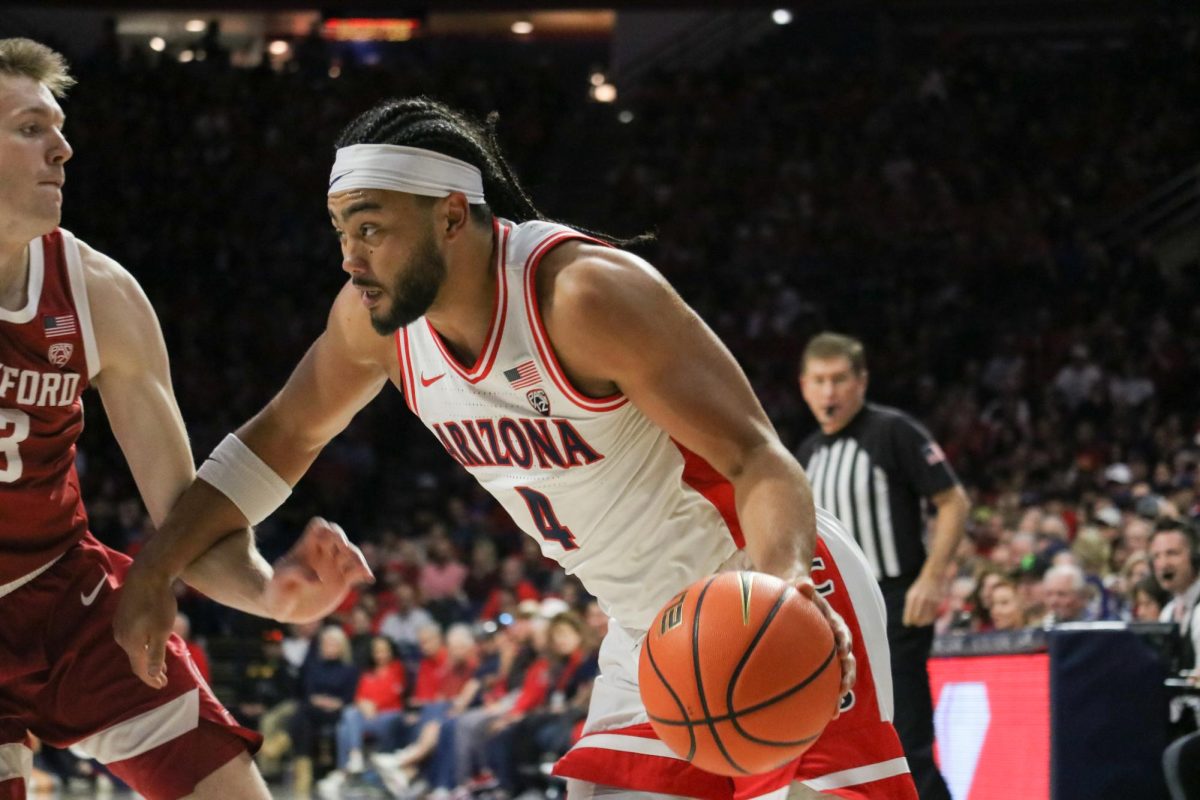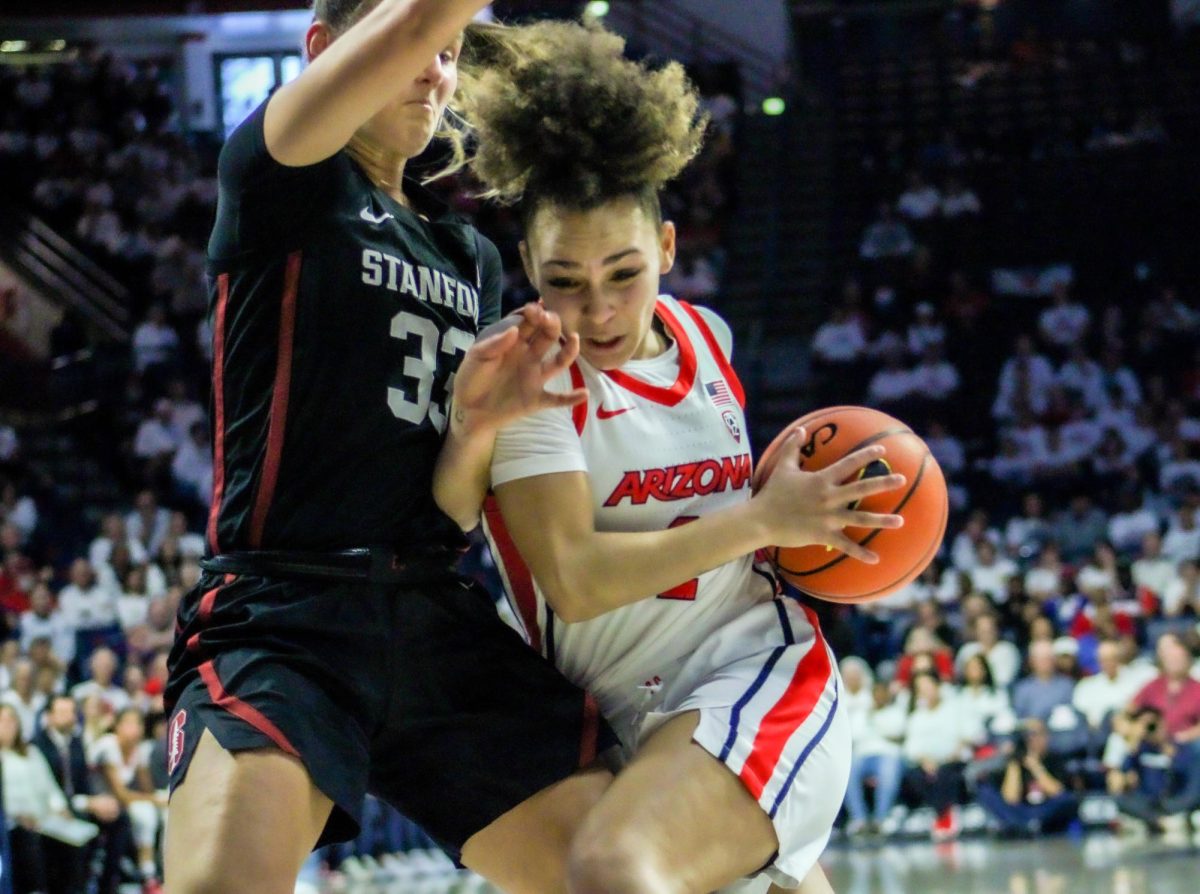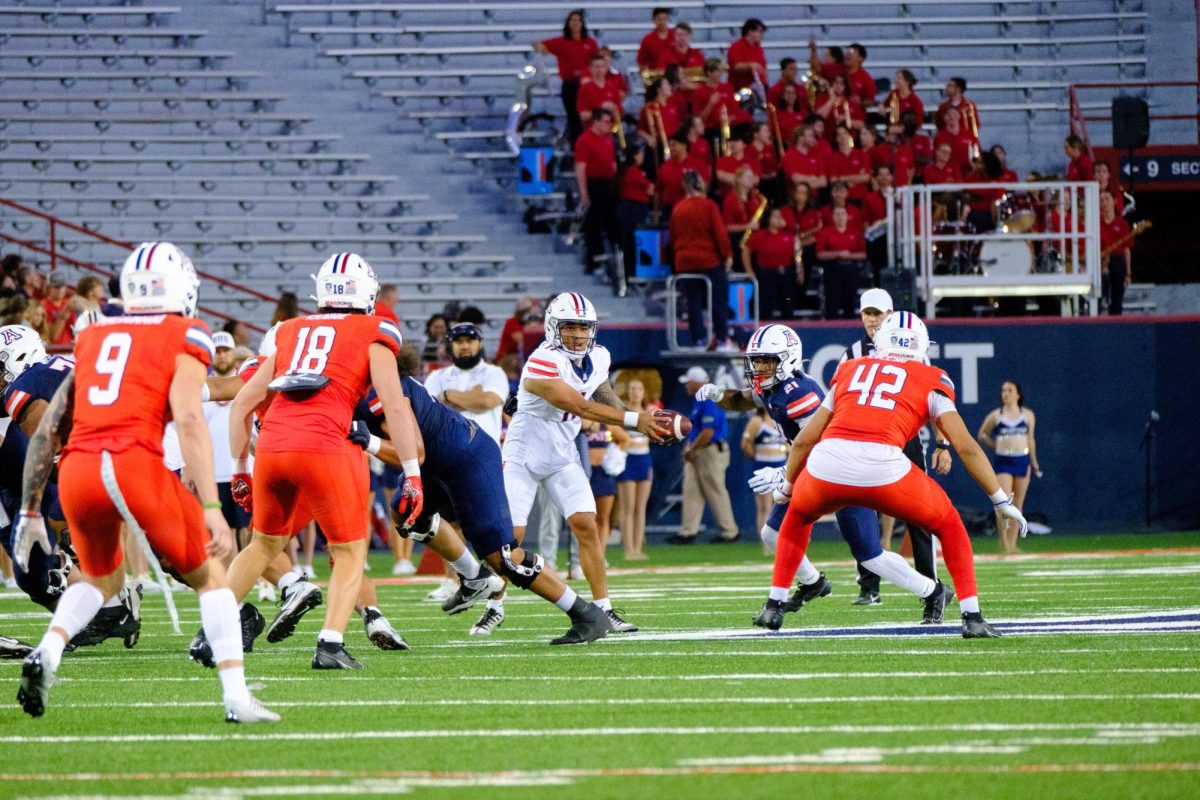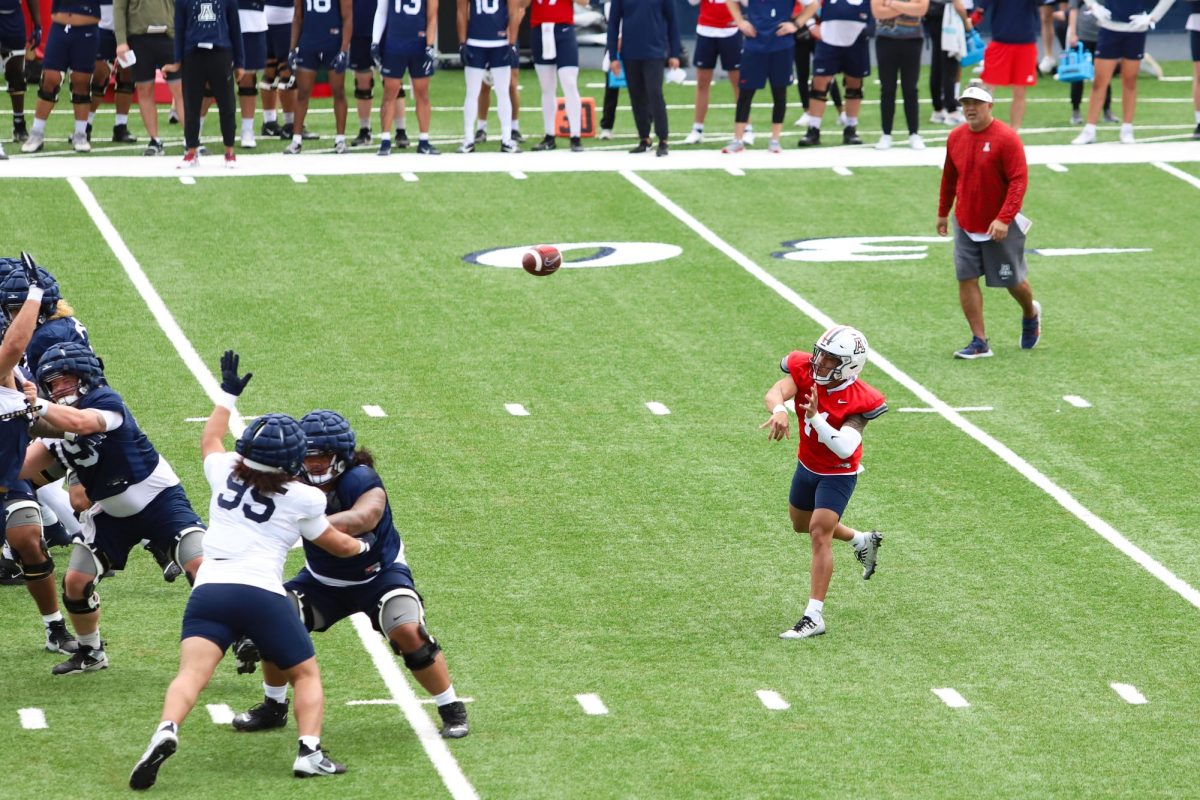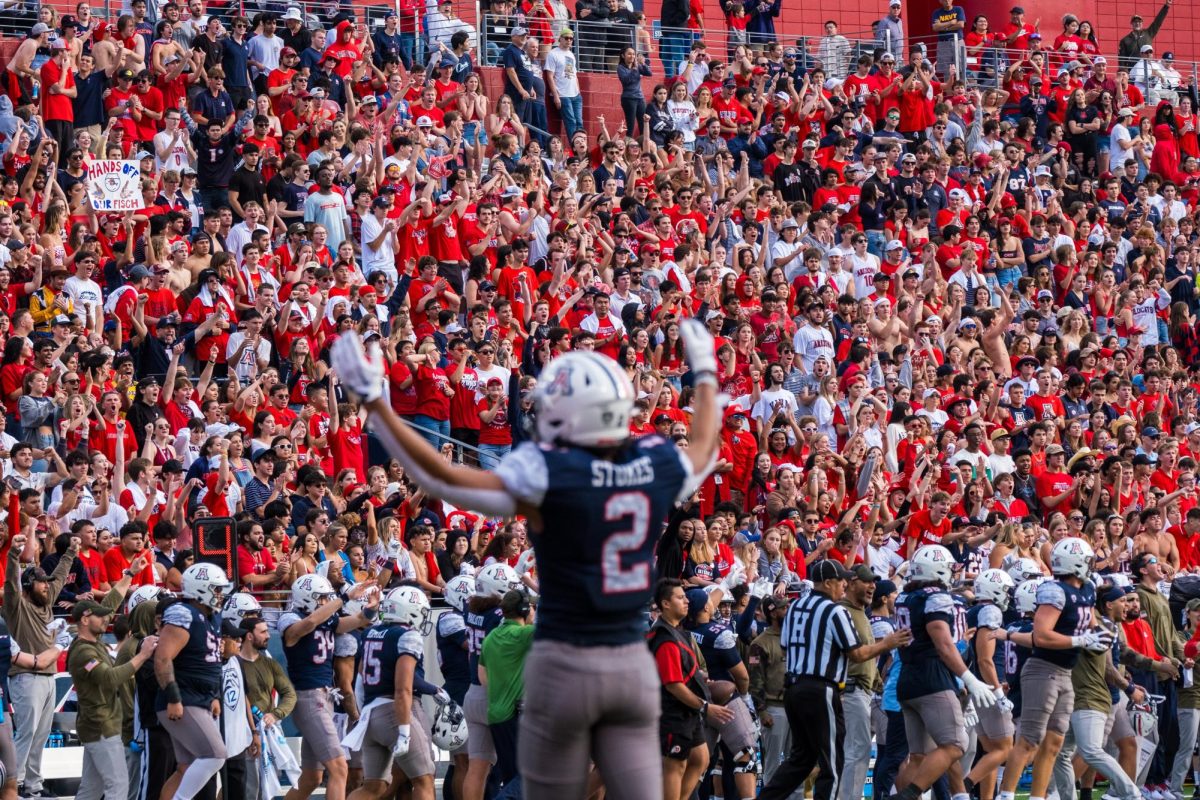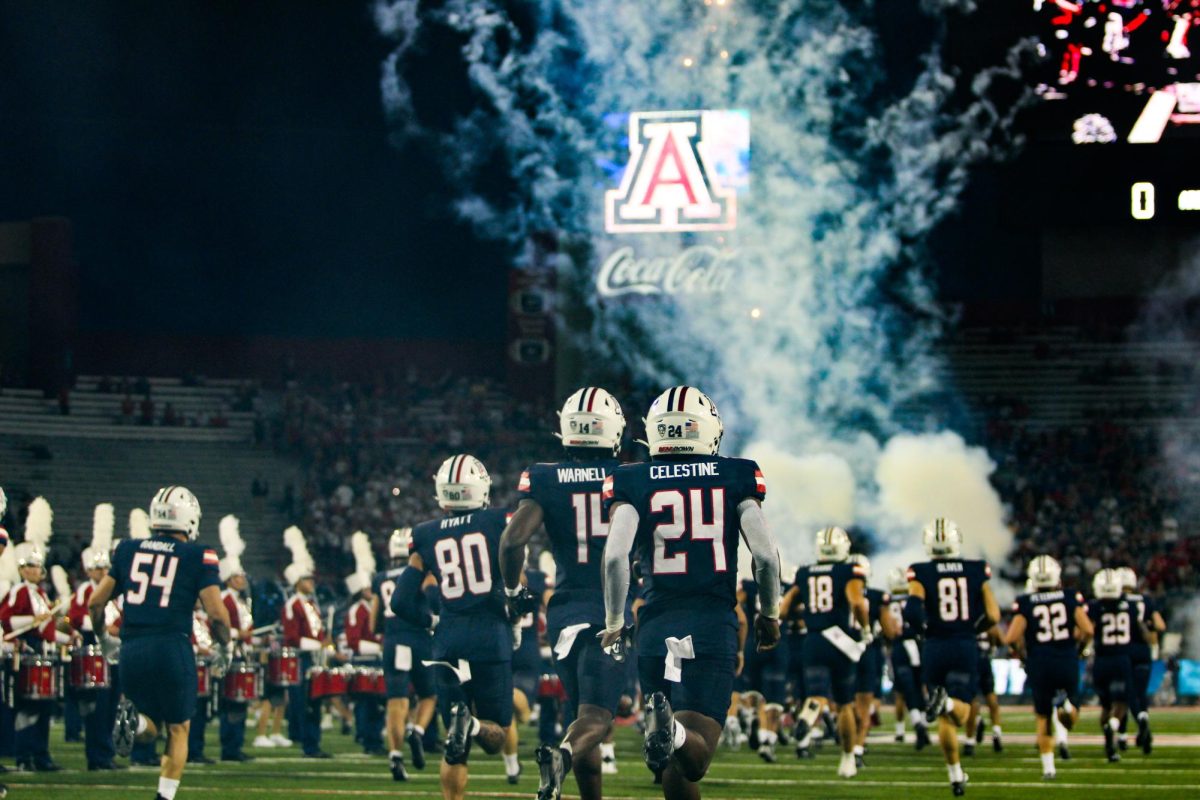In the wake of the University of Arizona theater department’s decision to pause admissions for the 2023-2024 school year, I am left questioning our school’s promise to support its entire student body. Here at The University of Arizona, there is an unbridled sense of school pride. Of course, that pride stems from different areas depending on the individual. Sometimes our major or department is what makes us feel proud to be a Wildcat; others are proud to walk the halls because their parents and grandparents did; a lot of us were also born in Tucson, so we were raised to be die-hard fans.
Most of all, athletics are what we fall for, and the university — as an institution and a business — keeps feeding the obsession. The long-lived tradition of overspending in the athletic department continues to undermine the other traditions that make UA worthy of school pride. The first of many recent extravagant spending occurred nearly five years ago.
AZCentral reported that, in 2017, the school had a $66 million renovation plan for the football stadium and aquatic center, among others — a renovation that would largely be placed on students to fund in the form of a mandatory athletic fee.
Non-athlete students are also paying for athletic development. $100 is charged to each undergraduate per year who is enrolled in at least seven credits. Sure this is not an astronomical amount, but it quickly accrues considering the nearly 40,000 enrolled undergraduates. At the same time, it is a matter of principle. Why is there an athletic fee when there isn’t an arts fee?
It is one thing to spend this immense amount of money on sports renovations, and it is another thing to see no improvement in football performance. In 2018 — the year the new aquatic center, stadium renovation and training facilities were put to use — Arizona Football scored a total of 376 points compared to an opponent average of 391. Statistics show that, in 2014, before this extreme expense, Arizona’s points totaled 491 when they were above their opponents’ average of 387. Last year, their total points amounted to only 206.
I previously understood that our football team was declining, though after reading these specific statistics, I truly wonder why they continue to be funded so heavily when they do not deliver results. There is a multitude of activities in which Arizona excels, such as art, music and UA multimedia, that are just as deserving of more funding.
The drastic spending that occurred in 2017 did not prepare the athletics department well for the debt that was to come when COVID-19 hit. In 2019, as well, it was stated that football expenditures had almost tripled since 2004, exceeding the Pac-12 and Power 5 conference averages. Some unfortunate compromises had to be made during the 2020-21 fiscal year when the university fell short of $45 million of what they expected to gain from athletics, $19 million of which were substituted by laying off employees and limiting routine expenditures.
Athletic students themselves also benefit directly from sports endowments. Starting this fall semester, the university implemented the 5980 Academic Fund, which awards student-athletes in exemplary academic standing an annual maximum of $5,980. These funds can be used towards academic-related expenses. Athletic Director David Heeke said, “our “5980 Academic Fund” raises our standards by providing additional resources for Wildcat student-athletes’ academic performance.”
Reading about such a substantial opportunity for student-athletes made me wonder if student-artists and musicians had any remotely similar chances. I know that, at the University of Arizona Fred Fox School of Music, the underground practice rooms are not soundproof, nor have they been recently renovated. For that reason, I doubted school support in the music department.
The School of Arts itself was not able to comment on financial options provided for arts students, and I also did not find much helpful information on the matter through my own research. However, with a simple Google search for student-athlete financial aid, ample sources appear. This past June, a generous donor gifted the athletic program with $4.8 million to “support program enhancements for the football and men’s basketball programs as well as the Lute Olson Endowment for Excellence in Men’s Basketball.” To me, there is so much wrong with this picture. A whole separate issue it calls on is the lack of attention women’s sports get, while it seems absurd that this abundance of funding comes from just one individual. An additional $1 million had been donated by a couple in 2021 toward the Wildcat Scholarship Fund and Arizona Football.
No such results were found with a Google search regarding arts students. What art and music students also lack are priority registration benefits; athletes are part of the first group to sign up for classes no matter their year. The UA Student-Athlete Handbook states that they have early registration dates to avoid unforeseen conflicts with practices. Music students, for example, also must meet certain practice times and are expected to have busy schedules.
Freelance musician Devin Gardner earned his master’s degree from the UA Fred Fox School of Music and often works with students and professors there today. Through an email interview, he expressed his thoughts on the imbalance of opportunities between music students and student-athletes. “It is no secret that most universities are driven by athletics — people are highly interested in sporting events, and they bring in large amounts of revenue for a school,” Gardner said. “With that, less than two percent of student-athletes go on to play at a professional level.” The NCAA can attest to that fact.
“[For music students], music is their major, something that the individual plans to spend their career engaged with.” He explained to me through email that music scholarships are extremely competitive and that “there are less conveniences [financially] for the music student population at large.” There are, however, full-ride scholarships available for graduate wind, brass and string quartet musicians, but little options for undergraduate students who find themselves at a crossroads when deciding what to pursue in college.
Gardner ended his email by saying that “It would be wonderful to see more opportunities that are visibly present in music, and the arts in general, to help secure highly motivated individuals to inspire, teach, and guide the next generation.”
In agreement with Gardner, I would say that money is the reason sports are hyped up so much. The ad videos, merchandise and booming audio at the games are a huge part of why we keep returning to the stadium. The cyclical nature of athletic revenue and spending seems impossible to tone down any time soon. As fun as the games are and as proud as our teams make us, there are plenty of other deserving student performers at the university who plan on pursuing these activities for the rest of their lives.
UA Theater is also at a great disadvantage, one that was fully realized as of Nov. 6. “The College of Fine Arts Administration at the University of Arizona paused recruitment for the BFA Acting/Musical Theater and BFA/MFA Design & Technology degrees for the 2023-2024 school year,” as stated by a new Instagram account called Save AZ Theater. The non-UA-affiliated account is urging viewers to sign petitions to aid in keeping the program alive.
Aidyn Corkell is a senior studying Theatre Production at UA who expressed their shock at the news, “Not just because the news itself, but because it was leaked to the press before they mentioned it to students and faculty.” according to their email response. Eliza Hitch, a sophomore in the Musical Theatre program, was also shocked and said through email, “It is very frustrating to be in a program that was touted as one of the best of the country, and now the administration clearly does not support it.”
Brant Pope, the current Interim Director of the School of Theatre, Film and Television, is aiming to “evaluate [the] curriculum considering current and future trends in the marketplace and a need to most effectively allocate limited resources within the school and college while maximizing opportunities for student success.” Essentially, “limited resources” are funds and the “maximization” of opportunities refers to the replacement of theatre production with a film-directed focus. Corkell says in his email, “While film and TV are more popular, and I agree that the program should update with that shift, my degree is not worthless and should not be treated as such.”
Pope admired the acting and design majors, calling them “excellent and very highly regarded,” though his statement on the recruitment pause was brief. Hitch commented on the statement saying in her email, “we were honestly just left with some very ominous headlines and not much substantive information.” She added that “The plans that the Interim Dean has in the works for the restructured degree programs within the School of Theatre, Film, and Television essentially rip that away — leaving me feeling very vulnerable in a school 2,000 miles from home.”
Arts students are left to wonder, contemplate and only hope for stability in their passion, unlike student-athletes who likely never think twice about such matters. Corkell and Hitch, and surely the rest of their classmates, already take risks pursuing their degrees in a world where the economic disparities between professional athletes and artists are plentiful. Hitch mentioned that in their email response, “One of the reasons the administration cites for the discontinuation of the program is that BFA majors do not succeed financially after graduation. That is absolutely not true, and many alums who are working and thriving will tell you so. Eliminating the BFA in Musical Theatre denies future generations of performers the opportunity to learn, grow and thrive here at the U of A.”
RELATED: REVIEW: ‘Dance Theatre of Harlem’ in Centennial Hall
Corkell expanded on Hitch’s email statement saying, “I know students and alumni in both design and technology and acting and musical theatre to go on to do Broadway, movies, operas, live music, dance and so on.” They said, “It’s important to note that the way we run our theatre fiscally is not the average for most places. We run off of strictly ticket sales, whereas your local theatre is most likely based on ticket sales and donors.” A university theatre program should not be lacking the support of its home school. Students and faculty should be able to sustain their programs, even under less fortunate situations.
As much as sports are widely enjoyed here and as much as they fuel our school pride, the athletic department gets the recognition because of the amount of money they are supplied. The cycle continues when that money is then met with more hype from fans through ticket sales and cultural practices like tailgating. It is possible to limit their expenses and appreciate the other successful departments at UA, like music and theatre. If administrators and donors considered the school as more of a community rather than a business, perhaps the funds could be shared. The Fred Fox practice rooms could actually install sound-proof technology; theatre students could be encouraged rather than put down and athletes could continue to build their programs at a fair rate.
Follow the Daily Wildcat on Twitter

Noor Haghighi is a second-year student exploring ways to harness her passions in environmental science and journalism. She loves wildlife photography and portraiture, fashion, music and film.




